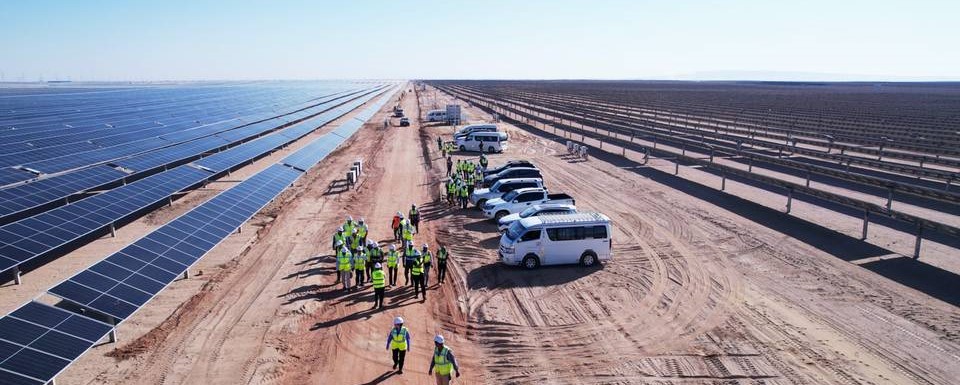(3 Minutes Read)
Egyptian Prime Minister Mostafa Madbouly officiated the opening ceremony of Abydos Solar PV Plant in Aswan, a USD 500-million initiative hailed as a testament to the nation’s growing commitment to sustainability and energy diversification. He underscored the government’s aspirations to position the country as a hub for renewable energy investment and production.
The solar power facility, developed by Dubai-based AMEA Power and constructed by China Energy Engineering Corporation, boasts an impressive capacity of 500 megawatts. It is anticipated to provide electricity to approximately 256,000 households annually while curbing carbon dioxide emissions by an estimated 760 tons per year. This ambitious project aligns with Egypt’s broader energy transition strategy and its pledge to contribute to global climate objectives.
The development’s funding exemplifies a collaborative effort across international financial institutions, including the International Finance Corporation, the Dutch Entrepreneurial Development Bank, and Japan’s International Cooperation Agency. Speaking at the event, AMEA Power Chairman Hussain Al Nowais described the solar plant as a milestone achievement, reflecting the confluence of foreign, Arab, and domestic investments in Egypt’s renewable energy sector.
Prime Minister Madbouly highlighted the plant’s opening as pivotal, characterising it as a forward-looking endeavour designed to blend economic advancement with environmental stewardship. This project represents not only a leap in renewable energy production but also a profound commitment to achieving sustainable development goals,and reinforcing Egypt’s vision of fostering green energy solutions on a global stage.
The Abydos project coincides with Egypt’s broader strategy of opening its energy sector to diverse investors. The initiative is part of a series of renewable energy ventures, including a recently signed agreement between the Egyptian government and AMEA Power to establish a 500-megawatt wind energy project in Ras Shukheir in the Gulf of Suez. With an estimated investment of USD 600 million, the wind project further underscores the country’s intent to harness its geographical and climatic potential for clean energy production.
Read Also:
Egypt’s renewable energy projects emerge at a critical juncture as nations worldwide accelerate their transition away from fossil fuels. Situated in one of the sunniest regions globally, the country’s solar projects like Abydos have the potential to transform its energy landscape while bolstering regional efforts to combat climate change. By creating infrastructure to support renewables, Egypt also signals an openness to private sector participation, providing significant opportunities for foreign and local investors alike.
The Abydos Solar PV Plant, a product of technological precision and international collaboration, serves as a benchmark for other African nations aspiring to strengthen their renewable energy infrastructure. Its inauguration marks not only a victory for sustainable energy but also an affirmation of Egypt’s role as a burgeoning leader in the global renewable energy arena.





